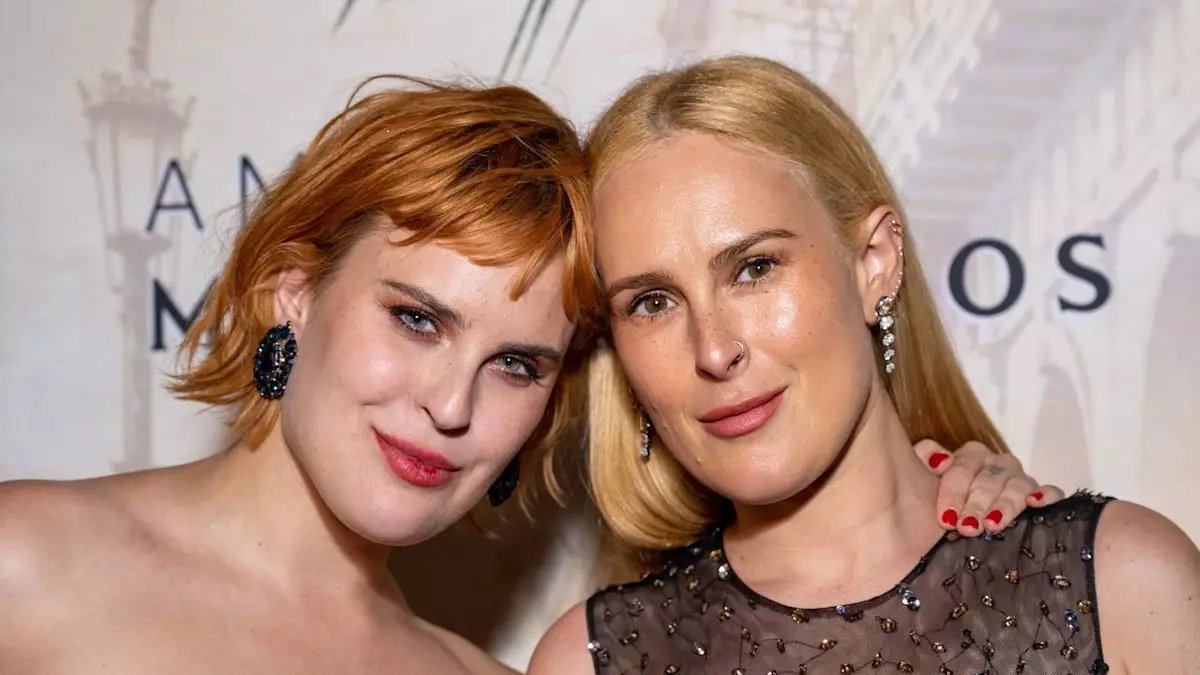At 29, Tallulah Willis faced a pivotal moment in her life: receiving an autism diagnosis. This revelation not only altered her self-perception but also fortified bonds within her family, particularly with her sisters, Rumer and Scout. In an interview, Tallulah expressed how the diagnosis alleviated the constant pressure she felt to portray a façade of normalcy. Instead of battling through her challenges in silence, she learned the importance of seeking support and articulating her needs. This newfound awareness has transformed her approach to life, shifting from a struggle against her internal landscape to an embrace of her true self.
Tallulah’s insight into her diagnosis highlights a critical point about autism: it can serve as a lens through which individuals understand their experiences and energy management. Many neurodivergent individuals walk a fine line, often feeling compelled to mask their true selves in social settings. For Tallulah, acknowledging her autism became a tool for empowerment. By recognizing how her energy dwindled in high-pressure situations, she could implement strategies to sustain her well-being, underscoring the importance of self-awareness and self-care.
A Family’s Unique Support System
The support system Tallulah cultivated with her sisters plays a crucial role in her journey. As she prepared for significant events like the Autism Speaks gala in Los Angeles, she learned to balance excitement with the necessary downtime to conserve her energy. Her sister Rumer celebrated her resilience on stage, emphasizing that Tallulah’s individuality and creativity led her to exist uniquely, almost as if on a different frequency. This representation of uniqueness is vital, as it reflects the idea that neurodiversity enriches familial and societal dynamics.
Rumer’s heartfelt introduction at the gala encapsulated the essence of Tallulah’s journey. Describing her sister’s autism diagnosis as a “homecoming,” Rumer depicted the emotional release that followed, allowing Tallulah to be unapologetically herself. This narrative reveals a broader understanding of autism; it is not merely a label, but a pathway to understanding oneself deeply. Rumer’s description inspires a reevaluation of how society views autism and neurodiversity, presenting it as a journey toward self-acceptance rather than a challenge to be overcome.
Finding Comfort in Authenticity
As Tallulah embraced her identity during the gala, her experience resonated with many who struggle with similar feelings of isolation and misunderstanding. The acknowledgment of her diagnosis allowed her to step into her personality with grace, unveiling a narrative of strength amidst vulnerability. At 30 years old, she reflects on this milestone with awe and appreciation, recounting the surreal experience of being honored for her journey. This celebration not only validated her struggles but also illuminated the importance of community and understanding in the lives of those with autism.
Tallulah Willis’s story serves as a poignant reminder that the journey through autism is diverse and highly personal. It challenges societal notions of normalcy, advocating for an embrace of differences that can unite families and communities. By sharing her narrative, Tallulah encourages others to explore their identities, seek support, and embody authenticity, fostering a culture of acceptance and understanding in a world often resistant to differences.

